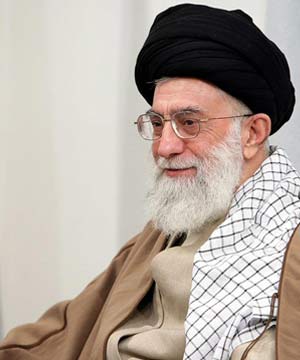The US is planning to resume negotiations with Iran following the US presidential elections, people familiar with the planning told Al Monitor, but the postures are likely to be more hawkish no matter who wins.
 “If Barack Obama is re-elected Nov. 6, his administration will have only about five months until Iran becomes embroiled in its own presidential contest next spring,” writes Barbara Slavin at Al Monitor. “If Mitt Romney wins, the Obama team will have an even shorter period and both Iran and the US may feel constrained about signing a deal that might be repudiated by the next US president.”
“If Barack Obama is re-elected Nov. 6, his administration will have only about five months until Iran becomes embroiled in its own presidential contest next spring,” writes Barbara Slavin at Al Monitor. “If Mitt Romney wins, the Obama team will have an even shorter period and both Iran and the US may feel constrained about signing a deal that might be repudiated by the next US president.”
Romney has explained that his policies towards Iran would be nearly identical to President Obama’s, although a band of hawkish, neoconservative campaign advisers doesn’t bode well for a diplomatic agreement on Iran’s nuclear program during a Romney administration.
“Iran will not distance itself from talks,” said Ismail Kowsari, an influential member of Iran’s parliamentary Committee on National Security and Foreign Policy said last month.
The question is whether Iran’s willingness to keep talks going will correspond with a willingness to talk from the West. So far, the US-led P5+1 group has made overly strict demands on Iran without offering substantive benefits, while continuing aggressive military and economic postures.
Iran, on the other hand, has offered a measured proposal which the West balked at and rejected, mainly because it would have required a lifting of the harsh economic sanctions the West has imposed on Iran, which is sadistically making the civilian population suffer.
The so-called diplomacy with Iran has been “predicated on intimidation, illegal threats of military action, unilateral ‘crippling’ sanctions, sabotage, and extrajudicial killings of Iran’s brightest minds,” writes Reza Nasri at PBS Frontline’s Tehran Bureau.
After the failed talks in 2009 and 2010, wherein Obama ended up rejecting the very deal he demanded the Iranians accept, as Harvard professor Stephen Walt has written, the Iranian leadership “has good grounds for viewing Obama as inherently untrustworthy.” Former CIA analyst Paul Pillar has concurred, arguing that Iran has “ample reason” to believe, “ultimately the main Western interest is in regime change.”
But the restarting of high-level negotiations are a step in the right direction. The Obama administration did resist pressure from Israel to back a preventive military strike on Iran for a nuclear weapons program it doesn’t have. Reaching a deal is conceivable with an Obama administration not seeking re-election, but it would have to include major concessions and the lifting of sanctions, which Washington will is reluctant to do.


